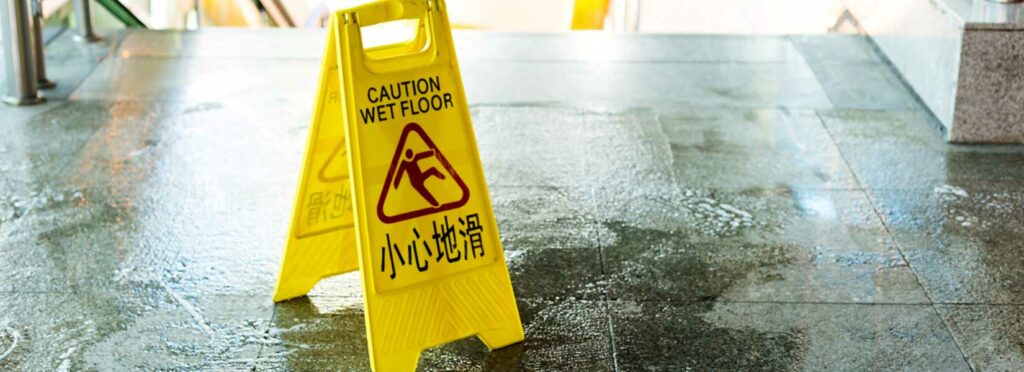Car accidents, dog bites, slips & falls, wrongful death, etc., all fall under personal injury law (PIL) when innocent victims sustain injuries. In such cases, the at-fault party would typically be responsible for the victim’s injuries and property damages. It usually includes medical expenses, lost earnings, non-economic damages, and lots more.
While the defendant bears liability for the damages, the plaintiff must mitigate them as much as possible. That means that they must minimize their injuries to the nearest minimum as much as it lies in their power. That could mean visiting the hospital, agreeing to corrective surgery, etc.
A plaintiff’s failure to mitigate damages doesn’t absolve the defendant of their liability. However, it can reduce the plaintiff’s damage awards significantly. As such, accident victims must consult their personal injury attorneys to guide them through their responsibilities after an accident. Read on to learn more about the doctrine of mitigation.
The Plaintiff’s Duty to Mitigate Damages Explained
As humans, it’s our instinct to protect ourselves from harm in any way possible. As such, when we fall victim to accidents, one of the first things we’d do is to check for injuries. If we feel we’ve sustained severe injuries, we will visit the hospital as soon as possible to ensure we don’t suffer complications.
While lessening our losses in an injury comes naturally to many of us, Georgia’s injury law makes it an obligation. Under the law, every victim has to take reasonable steps to reduce the effects of their injuries in an accident. That is the essence of the doctrine of mitigation of damages (or the doctrine of avoidable circumstances).
Reasonability, here, depends on the particular circumstances of each case. In most cases, it includes visiting the hospital and following up on your treatment plans. In worker’s compensation matters, it may involve refusing to seek employment after a workplace injury.
Examples of the Doctrine of Avoidable Circumstances
The doctrine of mitigation is applicable in many types of personal injury lawsuits. Here are some examples of how they apply:
-
Refusing Medical Treatment
A reasonable person would seek medical attention as soon as possible after an accident, especially if there are obvious signs of injury or discomfort. Delaying in receiving medical treatment increases the risk of injury complications significantly. Therefore, victims who refuse to visit a doctor after sustaining severe injuries have neglected their duty to mitigate damages.
In some cases, however, neglecting medical attention may not be a refusal to mitigate. For example, when someone sustains seemingly minor injuries and treats them as such only to discover they’re serious later on. In determining what failure to mitigate is, the courts will look at what actions were reasonable and irrational in the circumstances. Other times, refusing corrective surgery, disregarding the doctor’s advice, and refusing to seek alternative treatment may be a failure to mitigate.
-
Failure to Seek Employment
Sometimes your injuries can keep you away from work and stop you from earning a living. When that happens, the defendant is liable for your loss and future earnings. First, however, you must mitigate damages by seeking alternative employment if possible.
That is, if it’s possible to do other jobs aside from your regular employment, you must explore those options. Idling away and anticipating compensation when there’s an opportunity to work somewhere else would be a refusal to mitigate damages.
What’s the Effect of Failure to Mitigate Damages?
Failure to mitigate damages can be detrimental to your claims for compensation in a personal injury lawsuit. In addition, it can act as a viable defense for the defendant. All the defendant needs to do is prove that you didn’t take reasonable steps to mitigate damages following your injuries. That is, you failed to do what a reasonable man would have done in the same situation. If the court finds that to be true, they will award you a reduced compensation amount under personal injury law.
Contact an Atlanta Personal Injury Attorney ASAP!
If you are a personal injury victim in Atlanta, you must mitigate the effects of your injuries. Failure to do so may drastically and adversely affect the success of your personal injury lawsuit. As such, you need experienced Atlanta personal injury lawyers to guide you through your actions.
At Calvin Smith Law, our injury lawyers are dedicated to ensuring that you get maximum compensation for your injuries. From top-notch legal advice to quality legal representation, we are with you every step of the way. We don’t play, and we promise to make them pay. So contact us today, and let’s start your journey to getting justice.









